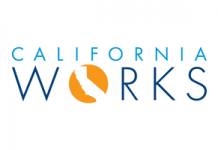The 2015 legislative year was very active in the labor and employment policy arena. Overall, the California Chamber of Commerce was very successful with bills that we supported, bills that we negotiated amendments to avoid opposing, as well as bills that we strongly opposed.
Below is a summary of what happened on some of the most significant bills.
Reducing Litigation
Governor Edmund G. Brown Jr. signed two CalChamber supported bills this year that will reduce employment litigation:
- AB 1506 (R. Hernández; D-West Covina), designated as a job creator, provides employers with a 33-day right to cure technical violations on an itemized wage statement before civil litigation under the Private Attorneys General Act (PAGA) can be pursued. AB 1506 is a great step toward PAGA reform and included an urgency clause, therefore going into effect immediately upon being signed on October 2.
- SB 358 (Jackson; D- Santa Barbara) will reduce employment litigation by clarifying ambiguous terms regarding gender equity pay, making the existing standards consistent with federal and state gender discrimination laws.
SB 358 reinforces the illegality of basing compensation on gender, yet still provides employers the ability to determine appropriate wages for employees for nongender-related business reasons, such as training, experience, education, and geographic location.
Wage and Hour Mandates
Several bills introduced this year would have significantly increased the cost of doing business in California for employers:
- SB 3 (Leno; D-San Francisco) proposed to increase the minimum wage to $13 an hour by 2017 and then automatically adjust it according to inflation thereafter. CalChamber identified SB 3 as a job killer, and it was held in the Assembly Appropriations Committee.
- AB 67 (Gonzalez; D-San Diego) proposed to mandate double pay for almost all employees who worked on Thanksgiving. Although the author used retail establishments that open on the evening of Thanksgiving as the need for the bill, it would have had an impact on a much broader group of employers, including hotels and lodging, which cannot realistically close on holidays. AB 67 failed passage in an Assembly Floor vote.
- AB 357 (Chiu; D-San Francisco) would have mandated large employers to provide employees with 14 days notice of their schedule, and then imposed statutory penalties for changes made to the schedule thereafter. This mandate removed an employer’s flexibility to accommodate employee last-minute requests for changes or time off, without the threat of financial penalties or litigation. AB 357 was identified as a job killer. Given the lack of support for this measure, AB 357 was moved to the inactive file on the Assembly floor and therefore never taken up for a vote.
- AB 970 (Nazarian; D-Sherman Oaks) expanded the Labor Commissioner’s authority to enforce local minimum wage ordinances. CalChamber opposed the bill based on concerns it would incentivize local jurisdictions to adopt minimum wage ordinances and also increase annual assessments on all employers to fund the Labor Commissioner’s expanded authority. AB 970 was signed by the Governor.
Expanding Protected Leaves
Several proposals involved employee leaves of absence.
- AB 304 (Gonzalez; D-San Diego) was the clean-up bill for paid sick leave, and included several important provisions, such as: grandfathering in paid time off policies that were in effect before the paid sick leave law; options for different sick leave accrual methods; and options for calculating the appropriate rate of pay for paid sick leave.
CalChamber worked extensively with the author and administration on AB 304, moving from opposition to no position on the bill upon obtaining employer-friendly amendments. AB 304 was signed by the Governor on July 13 and had an urgency clause that made it effective immediately.
- When introduced, SB 579 (Jackson; D-Santa Barbara) sought to expand the circumstances under which an employee could take paid sick leave to include nonmedical reasons. CalChamber initially opposed the bill due to this expansion, but continued working with the author to negotiate amendments to remove our opposition.
Once amended, SB 579 clarified the basis for an employee to take leave under the existing school activities leave. SB 579 was signed into law.
- SB 406 (Jackson; D-Santa Barbara) proposed to add five new family members to the California Family Rights Act (CFRA), which would have created a significant lack of conformity with the federal Family Medical Leave Act (FMLA), and potentially require employers to provide employees with up to 24 weeks of protected leave.
Given this expansion and the increased burden on California employers, CalChamber aggressively opposed SB 406 as a job killer. SB 406 was vetoed by the Governor.
Litigation Costs/Class Actions
- AB 465 (R. Hernández; D-West Covina) was sponsored by the California Labor Federation and identified by CalChamber as a job killer. AB 465 sought to ban all mandatory employment arbitration agreements signed as a condition of employment.
The CalChamber strongly opposed AB 465, pointing out that: arbitration is a cost-effective forum to resolve employee disputes that is beneficial to the employer and employee; California courts already have mandated extensive protections for mandatory employment arbitration agreements that benefit the employee; and interfering with the right to arbitration has repeatedly been struck down by the courts as pre-empted under the Federal Arbitration Act.
AB 465 would have had an impact on almost all employers in California and exposed them to a risk of litigation, including financially devastating class actions. Governor Brown vetoed AB 465.
- AB 359 (Gonzalez; D-San Diego) also was a job killer that mandated grocery employers to retain all employees of a successor employer for at least 90 days following the transition of ownership, and offer them continued employment thereafter.
The CalChamber opposed the bill given the risk of litigation and liability it creates for grocery employers and because the bill essentially mandates the recognition of an incumbent union representative of the successor employer. AB 359 was signed into law.
Wage Theft
- SB 588 (de León; D-Los Angeles) was introduced as an alternative to the pre-judgment wage lien bill that CalChamber and the business community have strongly opposed for the past several years. Compared to the prior prejudgment wage lien bills, SB 588 primarily targets employers in the underground economy that fail to pay final judgments issued by the Labor Commissioner for unpaid wages.
The CalChamber worked throughout the session with the author and sponsor to obtain amendments to portions of the bill that could have had significant impacts on employers trying to comply with the law. Through these efforts, the bill was substantively amended, and CalChamber ultimately had no position on the bill. The Governor signed SB 588.
Gender Equity
One of the main themes this year in the Capitol was gender equity in the workplace. This legislative agenda included AB 357, SB 358 and SB 406, referenced above. In addition, it included the following:
- AB 1017 (Campos; D-San Jose) sought to preclude employers from asking applicants about their prior compensation, based upon the concern that a future employer would solely base any offer of employment on the prior compensation provided, and perpetuate lower pay for women in the workplace.
The CalChamber opposed the bill due to the exposure of frivolous litigation to employers for seeking relevant information concerning an applicant that is not based upon gender. The Governor vetoed the bill.
- AB 1354 (Dodd; D-Napa) proposed to expand California’s current nondiscrimination program for state contractors to include additional information regarding the gender of employees in job positions, as well as annual wages.
The CalChamber initially opposed the bill given the new reporting requirements it created for state contractors. After obtaining several amendments to minimize the reporting burden, however, the CalChamber removed opposition. The Governor ultimately vetoed AB 1354.
Agricultural Labor Relations
Two bills dealing with the authority and procedures for disputes before the Agricultural Labor Relations Board (ALRB) were introduced this year, one supported by CalChamber and one opposed.
- AB 1389 (Patterson; R-Fresno) sought to make common-sense changes to the ALRB in an effort to protect employees by: requiring employees to ratify the terms of a contract imposed by a state mediator; including employees as parties for purposes of state mediation hearings; and decertifying an election if the certified labor organization abandoned the employees for three years.
The CalChamber supported AB 1389. Unfortunately, it failed to pass by a legislative deadline in the Assembly.
• AB 561 (Campos; D-San Jose), opposed by CalChamber, would have required an employer seeking a writ of review of any ALRB decision to first post a bond in the amount of the entire economic value of the order as determined by the board.
This requirement could have deterred many employers from seeking their right to appeal given that the entire economic value of the order would be unknown or in dispute, thereby limiting the possibility of obtaining a bond. Governor Brown vetoed AB 561.
Unemployment Insurance
No efforts were undertaken in 2015 to resolve the $8.7 billion debt owed to the federal unemployment insurance trust fund—a debt that is costing employers an additional $21 per employee per year in federal taxes. For tax year 2015, employers will be paying an additional $105 per employee. Employers will continue to see their federal tax liability increase each year until the debt is paid off, which is anticipated for 2019.
- The CalChamber led a large coalition in support of one unemployment insurance-related bill in 2015. AB 944 (Obernolte; R-Big Bear Lake) would have increased the opportunity for participation by all parties in unemployment insurance claims appeals hearings by holding hearings by telephone, instead of in person. The bill failed to get a hearing in its first Assembly policy committee.
- AB 1245 (Cooley; D-Rancho Cordova), signed by the Governor, requires all employers to file unemployment insurance tax returns and to transmit taxes electronically. Although the CalChamber did not take a position on the bill, we worked with the author and sponsor to create a path to compliance for employers that is less onerous than the bill originally proposed.
Staff Contacts: Jennifer Barrera, Valerie Nera, Marti Fisher


